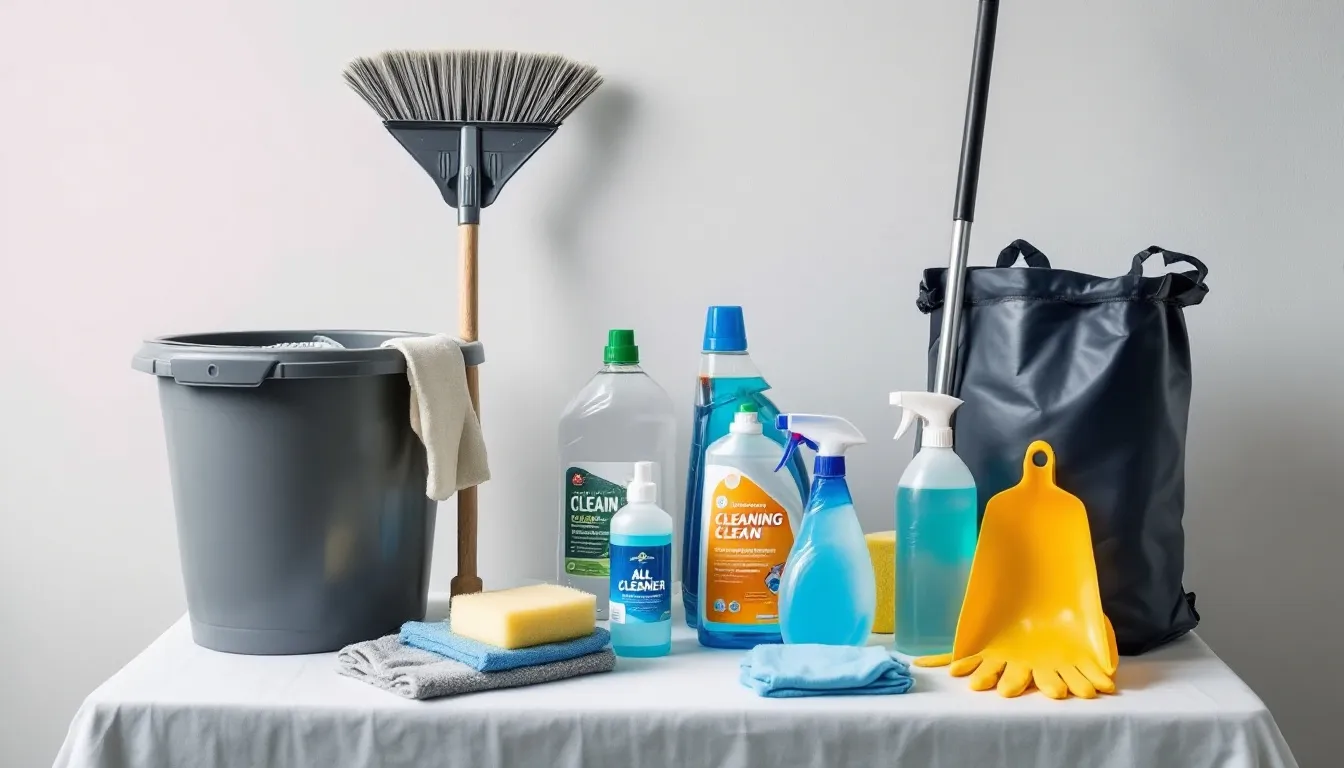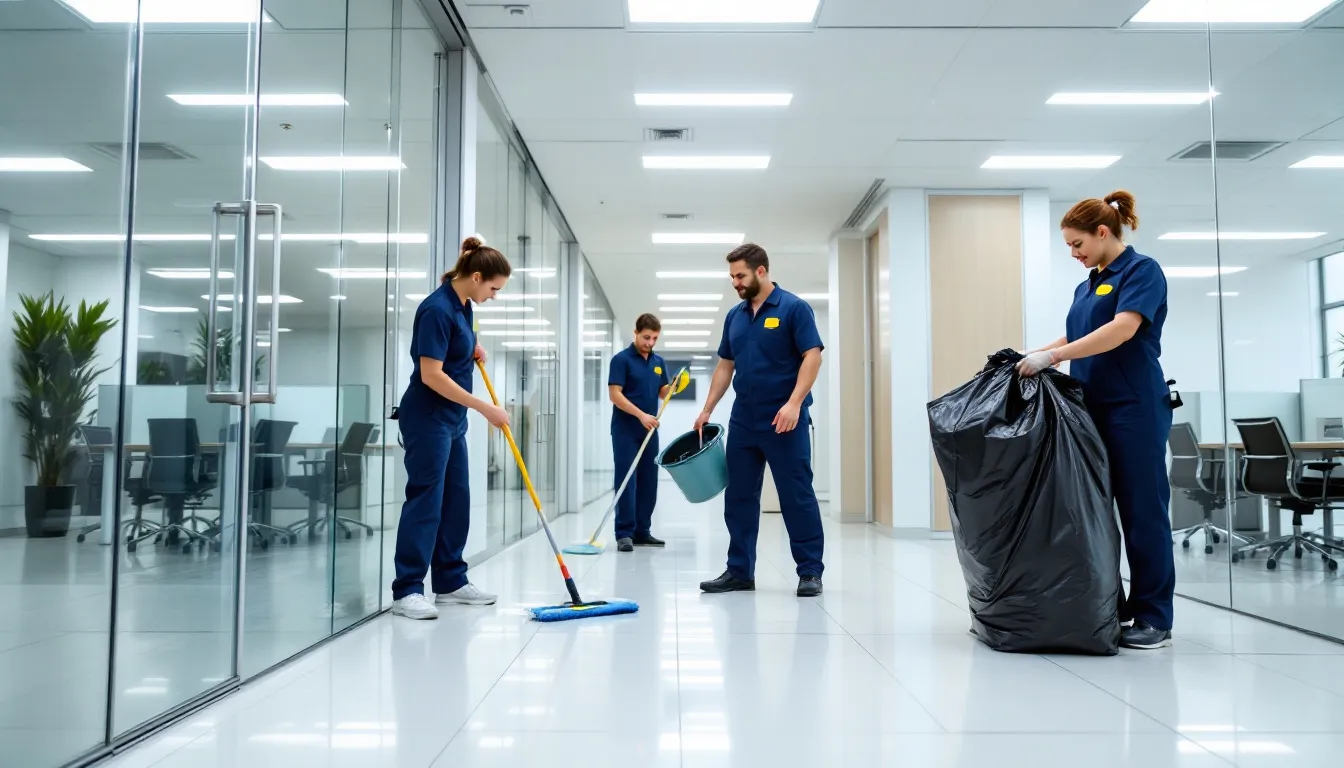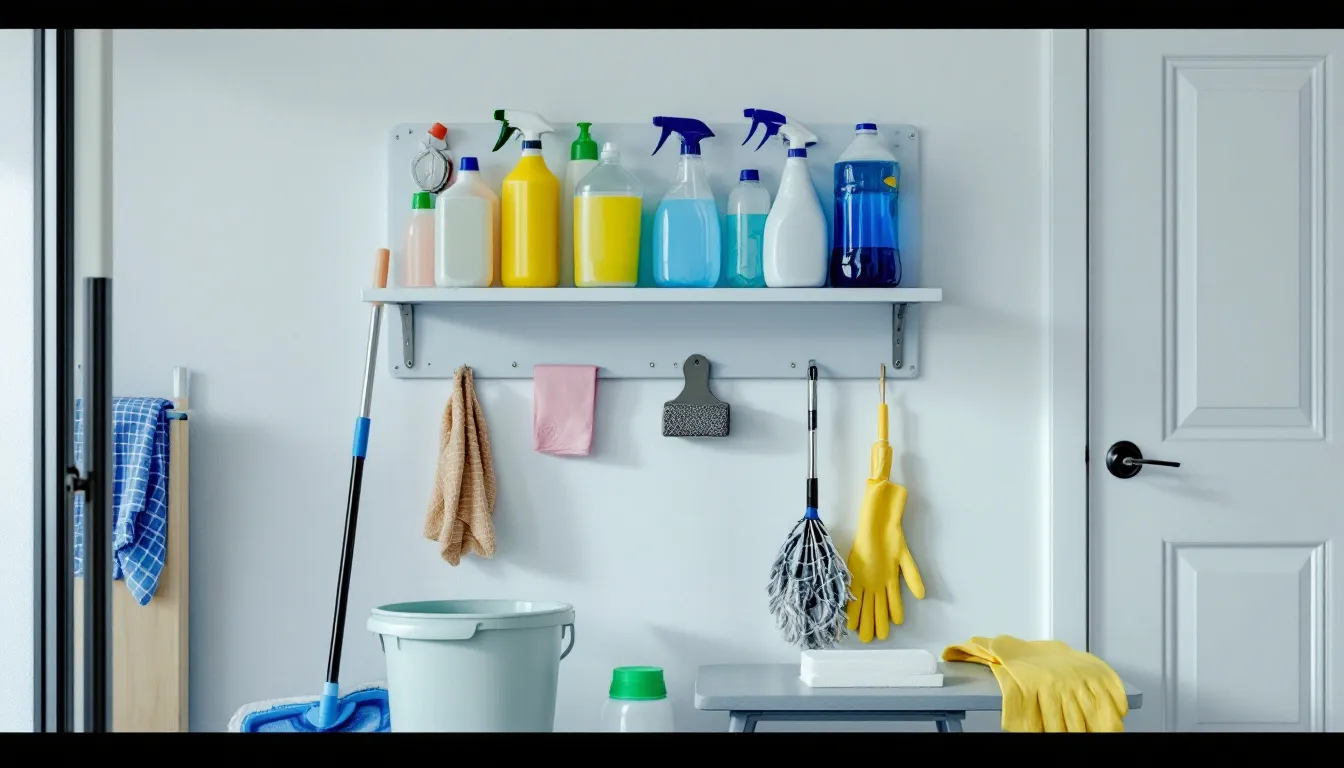Starting a cleaning business in Arkansas offers tremendous opportunities for entrepreneurs willing to navigate the state’s unique regulatory landscape. Unlike many states that require comprehensive licensing at the state level, Arkansas delegates most cleaning business oversight to local governments, creating a patchwork of requirements that vary significantly between cities and counties. With over 2,500 cleaning businesses currently operating in the state and startup costs ranging from just $2,000 to $10,000, the cleaning industry represents an accessible entry point for aspiring business owners.
Understanding Arkansas’s regulatory environment is crucial for success. While the state doesn’t require a general business license for most cleaning services, local licensing requirements, sales tax obligations, and insurance considerations create a complex compliance landscape that demands careful attention. This comprehensive guide will walk you through every essential step to start a cleaning business in Arkansas legally and strategically, from initial business registration to building a sustainable operation in your target market.

Overview of Starting a Cleaning Business in Arkansas
Arkansas cleaning businesses must register with the county clerk’s office and comply with local licensing requirements that vary dramatically across the state’s 75 counties. Unlike states with uniform statewide regulations, Arkansas empowers local governments to set their own standards for business licensing, creating opportunities for entrepreneurs who understand the local landscape but potential pitfalls for those who don’t research thoroughly.
No state-level business license is required for sole proprietors operating residential cleaning services, making Arkansas one of the more entrepreneur-friendly states for small business formation. However, this apparent simplicity masks the complexity of local regulations. Cities like Little Rock, Fayetteville, and Springdale maintain comprehensive business licensing systems with online applications and specific requirements, while smaller municipalities may have minimal or no formal licensing processes.
Sales tax registration through Arkansas Taxpayer Access Point (ATAP) is mandatory for most cleaning services, as Arkansas considers cleaning services taxable transactions. The state’s sales tax rate varies by location, with combined state and local rates ranging from 6.5% to 11.5% depending on your operating area. Failure to register for sales taxes can result in significant penalties and interest charges that can devastate a new business.
Business name registration at the county level is required for any cleaning business operating under a fictitious name or assumed business name that differs from the owner’s legal name. This assumed business name certificate process prevents confusion in the marketplace and ensures proper identification for tax and legal purposes. The entire registration process typically costs less than a few hundred dollars but requires careful attention to avoid delays and complications.
Startup costs for Arkansas cleaning businesses typically range from $2,000 to $10,000 depending on the scope of services and target market. Residential cleaning operations generally require lower initial investment, while commercial cleaning businesses need more substantial equipment and insurance coverage. These costs include essential cleaning supplies, vacuum cleaners, transportation, initial insurance premiums, licensing fees, and basic marketing materials.
Essential Legal Requirements and Licensing Steps
Successfully launching your cleaning business in Arkansas requires completing several essential legal steps that vary significantly by location. The process begins with proper business registration and extends through tax compliance, insurance acquisition, and local permit applications. Each step builds upon the previous one, creating a foundation for legal operation and professional credibility.
Register your business name with the county clerk’s office if using any name other than your legal personal name. This assumed business name registration protects your chosen business identity and satisfies legal requirements for operating under a fictitious name. The process requires searching existing business records to ensure your desired name isn’t already in use and filing the appropriate forms with your local county clerk’s office.

Conduct a thorough business name search before finalizing your selection. This research should include checking with the Arkansas Secretary of State’s business database, searching Google with your proposed name combined with Arkansas city and county terms, and verifying domain name availability if you plan to establish an online presence. A comprehensive search prevents costly conflicts and ensures your business name supports rather than hinders your marketing efforts.
Apply for any required local business license through your city or county government offices. Requirements vary dramatically between Arkansas municipalities, with some requiring comprehensive applications and others having no formal licensing process. Research your specific location’s requirements through official city or county websites, as operating without proper local licenses can result in fines, business closure orders, and damaged professional reputation.
Register for sales tax collection and remittance via the Arkansas Taxpayer Access Point portal, the state’s centralized system for tax administration. This registration is mandatory for most cleaning services and enables you to collect appropriate sales taxes from clients and remit them to the state on schedule. The department’s online portal streamlines the application process and provides ongoing access to tax documents and filing systems.
Obtain an Employer Identification Number (EIN) from the Internal Revenue Service if you plan to hire employees or establish your business as an LLC or corporation. Even sole proprietors without employees often benefit from obtaining an EIN for business banking and professional credibility. The application process is free through the IRS website and typically provides immediate confirmation.
Secure general liability insurance to protect your business against claims related to property damage, accidents, or professional mistakes. Most clients, particularly commercial accounts, require proof of insurance before signing contracts. Policy costs typically range from $500 to $2,000 annually depending on coverage limits, business size, and risk factors specific to your services.
Consider bonding for additional client protection and competitive advantage in the Arkansas market. Surety bonds guarantee client compensation in cases of theft or damage by your employees, providing peace of mind that can differentiate your business from unbonded competitors. While not legally required for most cleaning services, bonding demonstrates professionalism and can open doors to higher-value commercial contracts.
Arkansas City-Specific Requirements
Major Arkansas cities maintain distinct business licensing requirements that cleaning business operators must understand and comply with. Bentonville, Fayetteville, Fort Smith, Jonesboro, Little Rock, North Little Rock, Pine Bluff, and Springdale all require business licenses with specific application processes, fees, and ongoing compliance obligations. Each city maintains its own online application system and fee structure, typically ranging from $25 to $150 annually.
Conway represents an exception to the general licensing trend, explicitly exempting house cleaners from business license requirements. This exemption applies specifically to residential cleaning services but may not extend to commercial cleaning or specialized services like carpet cleaning or pressure washing. Business owners should verify current requirements directly with Conway’s city clerk’s office before assuming exemption status.
Individual city websites provide the most current information about specific application processes and fees. Most major Arkansas cities have modernized their business licensing systems with online applications, payment processing, and digital permit management. However, smaller municipalities may still require in-person applications and paper documentation, making direct contact with local government offices essential for accurate information.
Some Arkansas counties integrate sales tax registration with business license applications, streamlining the compliance process for new business owners. This integration can reduce paperwork and ensure comprehensive compliance with both local and state requirements. However, business owners should verify that all necessary registrations are included and complete, as integrated systems sometimes have gaps or limitations.

Why Legal Compliance Matters for Arkansas Cleaning Businesses
Proper licensing builds client trust and demonstrates professional operation in Arkansas’s increasingly competitive cleaning market. Clients, particularly commercial accounts and affluent residential customers, increasingly expect their service providers to operate with full legal compliance and professional insurance coverage. Licensed businesses signal reliability, professionalism, and commitment to operating within established legal frameworks.
Legal compliance protects against fines, penalties, and potential business closure by local and state authorities. Arkansas municipalities actively enforce business licensing requirements, and violations can result in immediate cease-and-desist orders, substantial fines, and legal complications that can destroy a new business. The Arkansas Department of Revenue similarly enforces sales tax compliance with significant penalties for non-compliance, including business closure authority in severe cases.
Licensed businesses gain access to larger commercial contracts and growth opportunities that require proof of legal operation and insurance coverage. Major commercial clients, property management companies, and institutional accounts typically require comprehensive documentation of legal compliance before considering service contracts. These higher-value opportunities often provide the revenue stability and growth potential that distinguish successful cleaning businesses from struggling operations.
Insurance and bonding requirements protect both business owners and clients from liability issues that could result in devastating financial losses. Without proper general liability insurance, a single accident resulting in property damage or injury could bankrupt a cleaning business and expose the owner to personal liability. Workers compensation insurance becomes mandatory when hiring employees, protecting both workers and employers from medical expenses and lost wages resulting from workplace injuries.
Proper tax registration ensures compliance with Arkansas Department of Revenue requirements and avoids penalties that can accumulate rapidly for non-compliant businesses. Sales tax violations carry both financial penalties and potential criminal charges in severe cases. Following tax regulations from the beginning establishes proper systems and habits that support long-term business success and growth.
Professional setup attracts higher-paying clients and supports business credibility in competitive market conditions. Clients willing to pay premium rates for cleaning services typically research their service providers thoroughly and prefer working with fully licensed, insured, and bonded businesses. This professional positioning enables higher pricing strategies and attracts clients who value quality and reliability over low-cost alternatives.

Arkansas-Specific Business Setup Strategy
Beyond legal compliance, building a thriving cleaning business in Arkansas requires a strategic approach tailored to local market conditions and customer preferences. The state’s diverse economic landscape, from urban centers like Little Rock and Fayetteville to rural agricultural communities, creates varied opportunities for different types of cleaning services. Understanding these market dynamics and positioning your business accordingly can determine the difference between modest survival and substantial growth.
Start with thorough market research in your target Arkansas counties to identify demand patterns, competition levels, and pricing strategies. Arkansas’s cleaning industry serves both residential and commercial markets, but demand varies significantly between different regions and economic sectors. Urban areas typically offer more commercial cleaning opportunities, while suburban and rural areas may favor residential services and specialized cleaning like pressure washing or carpet cleaning.
Choose between residential and commercial cleaning focus based on local market opportunities and your available resources. Residential cleaning typically requires lower startup costs and simpler equipment but may offer less predictable revenue streams. Commercial cleaning demands higher initial investment in equipment and insurance but can provide more stable, long-term contracts with predictable cash flow. Many successful Arkansas cleaning businesses start with one focus and expand into other areas as they grow.
Consider starting as a home-based business to reduce initial overhead costs and minimize financial risk during the startup phase. Arkansas law generally permits home-based cleaning businesses in residential areas, though some municipalities have specific regulations about equipment storage, vehicle parking, and business signage. Operating from home can reduce costs by eliminating commercial rent, utilities, and related expenses during the critical early months when revenue may be unpredictable.
Purchase essential equipment including high-quality vacuum cleaners, mops, cleaning supplies, and reliable transportation. Arkansas’s diverse geography and climate conditions require equipment capable of handling various cleaning challenges, from humid summer conditions to winter weather impacts. Investing in durable, professional-grade equipment reduces long-term replacement costs and ensures consistent service quality that supports customer satisfaction and retention.
Develop a pricing strategy competitive with Arkansas market rates while ensuring profitability and sustainable growth. Research local competitors through online searches, direct quotes, and industry networking to understand prevailing rates in your target market. Arkansas cleaning businesses typically charge between $25 and $50 per hour for residential services, with commercial rates varying based on facility type, frequency, and special requirements.
Create a comprehensive marketing plan targeting local Arkansas communities through online directories, social media platforms, and traditional networking methods. Google My Business listings, Facebook pages, and community website directories provide cost-effective visibility for new cleaning businesses. Word-of-mouth referrals remain crucial in Arkansas’s close-knit communities, making excellent customer service and relationship building essential marketing strategies.
Build relationships with local suppliers for cleaning products, equipment maintenance, and emergency replacements. Arkansas has numerous regional suppliers who understand local market conditions and can provide ongoing support for growing cleaning businesses. Establishing these relationships early can reduce costs, improve service reliability, and provide valuable business advice from experienced industry professionals.
Plan for seasonal variations in Arkansas climate that may affect cleaning service demand and operational challenges. The state’s hot, humid summers create different cleaning needs than its occasionally severe winter weather. Understanding these patterns helps with scheduling, equipment selection, and service offerings that maximize revenue opportunities throughout the year.

Starting a cleaning business in Arkansas requires careful attention to local regulations and strategic planning, but the opportunities for growth and success are substantial for entrepreneurs who take the right approach. The state’s business-friendly environment, combined with growing demand for professional cleaning services, creates favorable conditions for new business formation and expansion.
Success in Arkansas’s cleaning industry depends on understanding and complying with the complex web of local licensing requirements while building a professional operation that attracts and retains quality clients. The investment in proper licensing, insurance, and professional setup pays dividends through access to better clients, higher rates, and sustainable growth opportunities.
Take the first step by conducting thorough market research in your target area and contacting your local county clerk’s office to understand specific licensing requirements. With proper preparation and commitment to professional operation, your Arkansas cleaning business can become a profitable and rewarding venture that serves your community’s needs while building long-term wealth and independence.